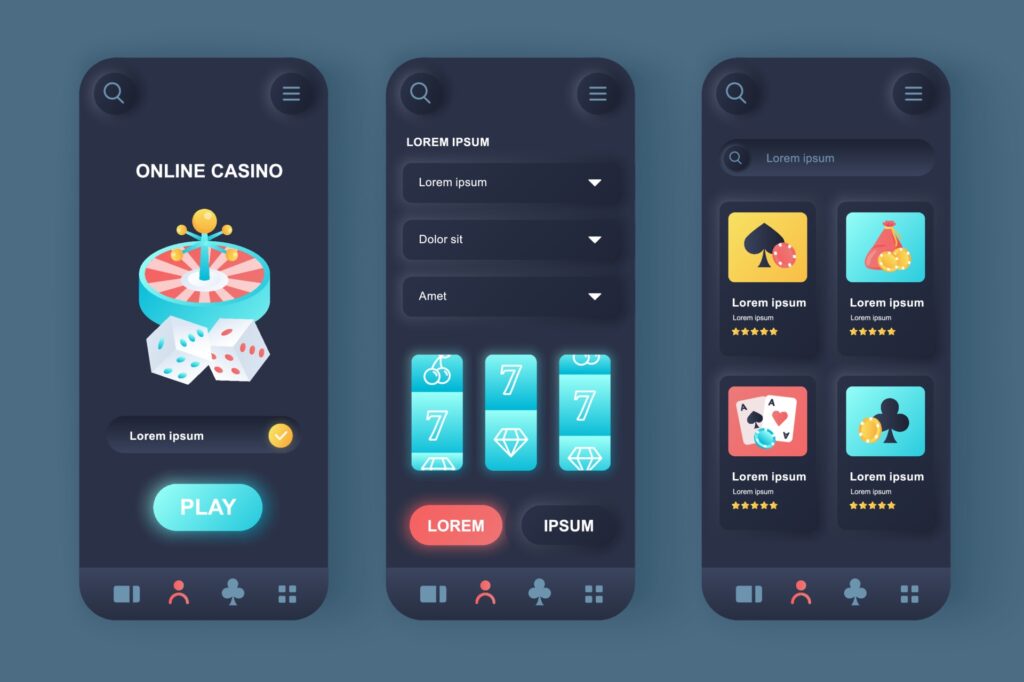The landscape of the gambling industry has drastically evolved over the past few decades. A pivotal part of this transformation is the integration of video game design principles, offering a renewed approach to player engagement. The dynamic and immersive nature of video games has prompted the gambling industry to evolve beyond simple wagering activities and towards more captivating experiences. This convergence represents an intersection between entertainment and profit, further blurring the lines between gaming and gambling.
Immersive Gameplay and Storytelling

Video games have long capitalized on immersive gameplay and rich storytelling to engage players. These principles are now reflected in the realm of gambling, where platforms strive to provide experiences that transcend mere profit-making ventures. For instance, certain online casinos incorporate narrative elements in their slot games, blending traditional one with an adventure-themed journey.
A notable example is ‘Gonzo’s Quest’ by NetEnt, a slot game that follows the narrative of a Spanish explorer seeking lost gold. Players don’t just spin reels but are involved in a story that progresses as they play, making the gambling experience more engaging. Narrative-driven gameplay maintains the player’s interest and motivates them to return, consequently increasing player retention for these platforms.
Gamification and Rewards
Gamification, a term coined by the video gaming industry, is the integration of game-like elements into non-game contexts. In gambling, gamification manifests as level-ups, badges, achievements, or virtual trophies. Such elements instill a sense of accomplishment and progress, enhancing player motivation and loyalty.
An example is the online casino Rizk, where players can spin a ‘Wheel of Rizk’ to earn rewards as they level up. This gamified approach not only makes the entire experience more exciting but also capitalizes on the psychological impact of rewards, encouraging continuous player participation. Another similar example is the game Aviator, and if you want to check out what mean by that visit https://playaviatorgame.net/becric/.
Skill-Based Gaming

The influence of video games is also evident in the rise of skill-based gambling. Unlike traditional games of chance, skill-based games give players a degree of control over outcomes. This feature is prevalent in video games and has been incorporated into gambling experiences like poker or eSports betting.
However, skill-based wagering also poses challenges. For instance, it’s difficult to maintain a balance between skill and chance to ensure fairness, while keeping the games engaging. Nonetheless, the incorporation of skill elements enhances the appeal for younger demographics, who appreciate the blend of strategy, skill, and chance.
Social Interactions and Multiplayer Experiences
The social aspect is a core feature of many video games, fostering a sense of community and camaraderie. This social nature has seeped into modern gambling experiences, where chat systems, leaderboards, and interactive competitions are increasingly prevalent.
For instance, PokerStars offers multiplayer poker games with integrated chat systems, allowing players to interact in real-time. Similarly, online casinos host live tournaments, providing a platform for players to compete and interact, enhancing player engagement and mimicking the multiplayer experiences found in video games.
Personalization and Customization

The ability to personalize one’s gaming experience is a key aspect of video games, allowing players to create unique avatars or select preferred game settings. This trend has influenced the gambling industry, with modern platforms providing a tailored experience.
For example, online casinos allow players to customize their interface or select favorite games. Additionally, players can create avatars for multiplayer poker games, offering a personalized and immersive experience. Such customization enhances player satisfaction and fosters a sense of ownership and identity within the platform.
In-Game Purchases and Microtransactions
In-game purchases and microtransactions, commonly found in video games, are now an integral part of certain gambling experiences. Online casinos offer extra spins or bonus money, akin to purchasing additional lives or boosts in video games.
However, this model has raised ethical considerations. Critics argue it promotes excessive gambling behavior, highlighting the need for adequate regulatory measures. Despite these concerns, in-game purchases offer players enhanced control over their experience, contributing to the overall appeal of modern gambling platforms.
User Interface and Experience Design

Video games have always prioritized user interface (UI) and user experience (UX) design, as these aspects significantly influence player engagement. Modern wagering platforms have incorporated these principles to offer a seamless and enjoyable experience.
Visual aesthetics, intuitive controls, and responsive design form the core of UI/UX design in gambling interfaces. Such design elements not only attract players but also facilitate ease of navigation and game comprehension, thereby improving overall user satisfaction.
Competitive Tournaments and eSports Betting
Competitive gaming or eSports has gained significant popularity, and the gambling industry has capitalized on this trend. eSports betting has emerged as a popular activity among gamblers, akin to traditional sports betting.
Platforms such as Betway eSports offer players the opportunity to bet on various eSports tournaments, providing a competitive edge to the gambling experience. However, like any other activity, eSports betting poses challenges, such as match-fixing or underage betting, demanding robust regulatory frameworks.
Progression and Advancement Systems

Video games often feature progression and advancement systems, where players gain status or rewards based on their performance. Similar systems are used in gambling platforms to foster a sense of progress and reward player loyalty.
Many online casinos feature VIP programs or loyalty tiers, where players earn points to unlock rewards or privileges. This tactic borrows from the video game industry, capitalizing on the psychological satisfaction associated with progress and achievement to boost player retention and engagement.
Real-Time Feedback and Interactive Elements
Real-time feedback and interactive elements are core aspects of video games, contributing to player engagement and immersion. This trend has influenced modern gambling experiences, with platforms incorporating live chat, live dealers, or interactive mini-games.
For instance, live casino games offer real-time interaction with dealers, mimicking the experience of a physical casino. Such features contribute to a dynamic and immersive gambling experience, enhancing player satisfaction and participation.
Mobile Gaming and Cross-Platform Integration

The ubiquity of mobile gaming has not gone unnoticed by the gambling industry. Mobile gambling apps reflect many design principles from mobile games, offering convenience and accessibility.
Furthermore, the concept of cross-platform integration allows players to transition seamlessly between devices, ensuring continuity of their gaming experience. This integration enhances player convenience and broadens the potential player base for gambling platforms.
Ethical Considerations and Responsible Gambling
The fusion of video game design and gambling experiences has raised ethical concerns, particularly around problem gambling and exploitation of young players. As such, responsible gambling measures, player education, and strict regulatory frameworks are paramount.
While it’s essential to enhance player engagement, it is equally crucial to ensure players’ well-being. Features like self-exclusion tools, deposit limits, and reality checks can help mitigate potential risks, emphasizing the necessity for a balanced approach to this innovative intersection of gaming and gambling.
Conclusion

The convergence of video game design principles and modern gambling experiences reflects an industry evolution driven by player engagement and satisfaction. While this fusion offers exciting possibilities, it also demands careful consideration of ethical implications and a steadfast commitment to responsible gambling.
The future of gambling is set to continue borrowing from the video game industry, shaping an increasingly immersive, personalized, and dynamic experience. Amid this evolution, maintaining a focus on player well-being and responsible practices will be integral to sustainable innovation in the industry. Game on!

